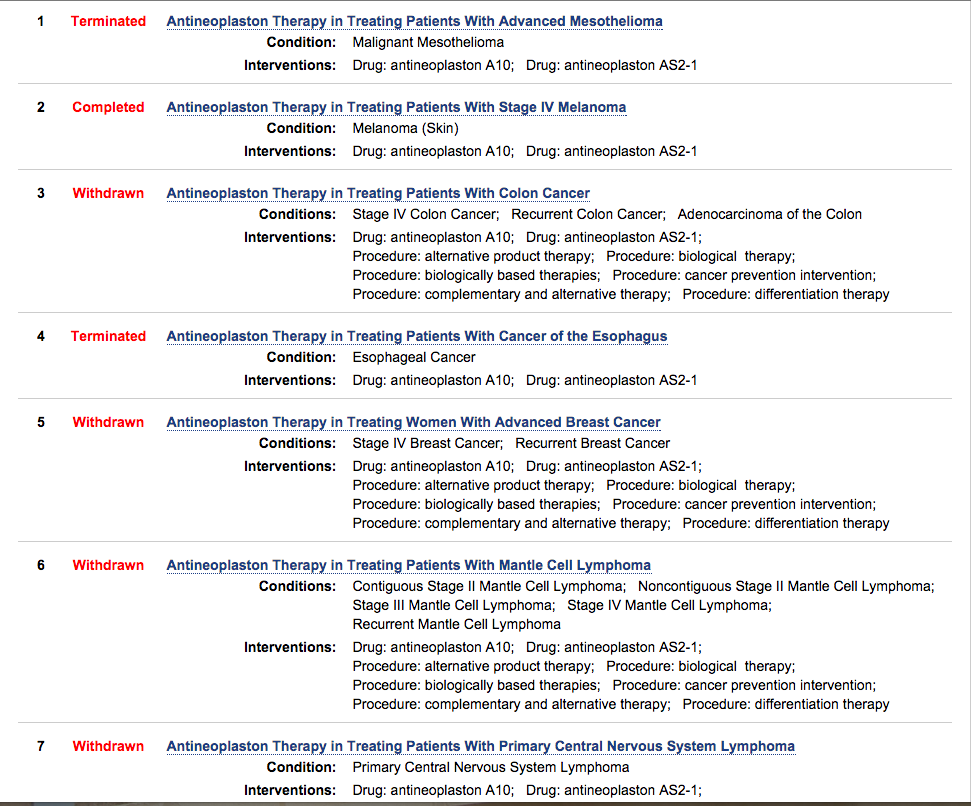I received this Mercola announcement for the movie, Burzynski about Stanislaw Burzynski's (allegedly) amazing cure for cancer, which uses antineoplastons.
The Mercola article claims some fairly hefty things, such as:
Burzynski, the Movie is the story of a medical doctor and Ph.D biochemist named Dr. Stanislaw Burzynski who won the largest, and possibly the most convoluted and intriguing legal battle against the Food and Drug Administration in American history.
and
You will learn that not only did the US Federal government spend 14 years actively suppressing a cancer treatment that had a FAR greater success rate than any other treatment available, they also spent well over $60 million of US taxpayer dollars trying to put the inventor of the treatment in jail in order to steal his patents and either suppress or cash in on his discovery.
But Wikipedia says:
Burzynski had appealed the limitations on his advertising [due to a cease and desist order from the FDA] on the grounds of free speech, but the appeal court upheld the decision, stating that "Burzynski's commercial speech does not concern a lawful activity."
...The 2010 film Burzynski directed by Eric Merola, documents Burzynski's efforts to gain FDA approval for the therapy. [emphasis mine]
My resultant questions are:
- Is there any evidence for his "cure"? In order for the FDA to suppress a cure that had a "FAR greater success rate than any other treatment available," well, it has to be shown to be successful at all.
- Is Mercola correct in reporting that Burzynski won the most important battle against the FDA in American history? Wikipedia seems to indicate that the FDA ruling still stands.
I suspect that the new, shiny developments in this industry that one doesn't hear about until Mercola advertises it were probably never much to begin with. Also, they unsurprisingly tend to involve aspects of a "big government conspiracy," and the bundled accusation that the only thing the US government cares about is keeping its citizens diseased and broke.
Nevertheless, I'm still interested in facts others can find, as well as making this a reference for other googlers. I will say that he has quite the list of publications, but it's difficult to find reviews of Burzynski's work that aren't published by him.

